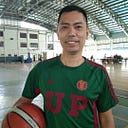Our Photoshop at Recto Avenue
by Oliver Carlos
One of the oldest photographs in my Dad’s collection was a post-war 1940s picture of a photoshop in Manila. The owners of the shop were a married couple named Conrado and Corazon de Jesus. Conrado was a professional photographer, while Corazon was my Dad’s aunt, the younger sister of Tomas, who was my grandfather.

After World War 2, Conrado opened a photoshop along Calle Azcarraga near the corner of Morayta street in Manila. Today, the former is called Recto Avenue. His shop offered picture taking, developing, and printing of photographs. Being at the heart of the university belt, his business catered to students who needed ID pictures, graduation pictures, and the likes. One time, his shop was the official ID maker of the University of the East (UE). Other schools in the vicinity were FEU, NU, San Sebastian, UM, San Beda, CEU, and Arellano University. He must have had a booming business back then.
I learned that the shop at Recto is no longer existing today. As in most cases, there must have been economic factors beyond their control that made them close shop. The descendants of Conrado and Corazon now live somewhere in Quezon City. I heard one of their sons became a 3-term barangay captain decades ago. Meanwhile, a National Bookstore branch now occupies the same lot where the old De Jesus photoshop once stood.
When my son was studying in UST, I frequented Recto Avenue. I enjoyed strolling along and observing the hustle and bustle of the vicinity. So many people swarm around the shops, many of whom are students. Aside from the notorious shops that make fake documents, Recto is also known as a haven for shoppers looking for secondhand textbooks, medals, trophies, lanyards, painting and picture frames, and ROTC uniforms and paraphernalia. In fact, that’s where I bought my 1899-model Pershing cap. That’s the type of military hat that Gen. Antonio Luna and Gen. Gregorio del Pilar used.
Today, in the pandemic times, I wonder how Recto looks like? Coming from Los Banos, which is another university town, I can’t help empathizing with the small entrepreneurs whose businesses are dependent on students. What have happened now to the photoshops like my granduncle’s? How about the laundry shops, boarding houses, photocopy shops, school supplies stores, computer shops, school uniform tailoring shops, and eateries?
The pandemic is indeed a back-breaker. So many people have lost their livelihood. It’s depressing just thinking about one’s financial losses. It’s mind-wracking to think of ways on how to rise up from the shambles and be well off once again. Such was the time of Habakkuk in the Old Testament. There was also a plague or a pestilence in his country. But after meditating on God’s power and character, he came up with this conclusion:
“Though the fig tree does not bud and there are no grapes on the vines, though the olive crop fails and the fields produce no food, though there are no sheep in the pen and no cattle in the stalls, yet I will rejoice in the Lord, I will be joyful in God my Savior.” (Habakkuk 3:17–18, NIV)
Figs, grapes, and olives were the main agricultural crops in Israel. Herding of sheep and cattle were also huge industries. Habakkuk said that even if these sources of livelihood run dry, even if he no longer had money in his pocket, he would still praise God. He will still look up to God as his savior who will bail him out of his financial woes.
Friend, you are not alone in your economic struggle. Habakkuk has been there before, and he has experienced God’s saving power. Don’t lose hope, keep on trusting God, he will never fail you. Pray the prayer of Habakkuk:
“Lord, I have heard the news about you. Lord, I am amazed at the powerful things you have done. Do great things once again in our time. Make those things happen again in our own days.” (Habakkuk 3:2, ICB)
